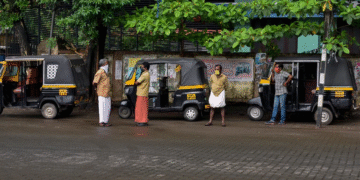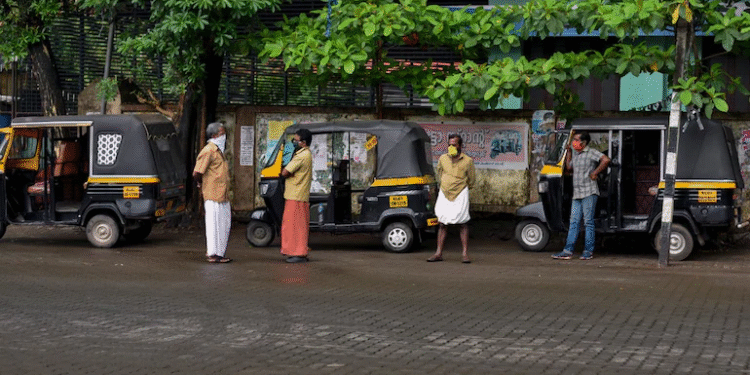Kerala is set to become India’s first state free from extreme poverty on November 1, 2025. This milestone marks a significant achievement in poverty eradication efforts, with over 59,000 families lifted out of extreme poverty through comprehensive government initiatives
Thiruvananthapuram, October 24, 2025 – In a historic move, Kerala is set to become the first state in India to be officially declared free from extreme poverty. Chief Minister Pinarayi Vijayan announced that the declaration will be made on November 1, coinciding with Kerala Piravi Day, the state’s formation day. The event will take place at the Central Stadium in Thiruvananthapuram and will be attended by prominent figures including film stars Kamal Haasan, Mammootty, and Mohanlal.
Understanding Extreme Poverty
Extreme poverty is defined as a condition where individuals or families are unable to afford even the most basic necessities such as food, shelter, clothing, healthcare, and education. In Kerala, the government initiated a comprehensive plan to identify and assist families living in such conditions.
The Extreme Poverty Eradication Programme (EPEP)
Launched in August 2021, the EPEP aimed to identify families experiencing extreme poverty and provide them with the necessary support to improve their living conditions. The program focused on four key areas: food security, health services, housing, and income generation.
Through meticulous surveys, the government identified 64,006 families as extremely poor. After auditing and removing deceased and untraceable individuals, 59,277 families were finalized as beneficiaries. Each family received a micro-plan tailored to their specific needs, ensuring targeted interventions.
The landmark announcement will take place at Thiruvananthapuram’s Central Stadium, in the presence of all state ministers, local body representatives, and film icons Kamal Haasan, Mammootty, and Mohanlal, who will attend as chief guests. The Leader of the Opposition V.D. Satheesan has also been invited to the event, which will feature cultural performances before and after the main ceremony.
“This is a historic moment. Kerala has become the first Indian state to eradicate extreme poverty,” said Local Self-Government Minister M.B. Rajesh and Education Minister V. Sivankutty at a press conference in Thiruvananthapuram.
Key Achievements
- Food Security: Over 2,600 families received regular food assistance, ensuring they had access to essential nutrition.
- Healthcare Services: Approximately 2,900 families benefited from health services, including medical check-ups and necessary treatments.
- Housing: For families lacking adequate shelter, the government provided new houses or renovated existing ones.
- Documentation: Ensuring that all families had access to essential documents like Aadhaar, ration cards, and voter IDs was a priority.
District-Level Progress
In Thiruvananthapuram district, significant progress has been made. Out of 6,250 identified families, 5,929 have been lifted out of extreme poverty, marking a 94.86% success rate. Additionally, 24 local bodies within the district have been declared free from extreme poverty.
Global Recognition
Kerala’s achievement has garnered international attention. According to Local Self-Government Minister M B Rajesh, Kerala is now the second region globally to achieve this feat, following a similar accomplishment in China.
Future Plans
Building on the success of the EPEP, the Kerala government plans to continue its efforts to eliminate all forms of poverty. Future initiatives will focus on sustainable development, education, and employment opportunities to ensure that the gains made are long-lasting.
How Kerala did it: The inside story
Launched in 2021, Kerala’s Extreme Poverty Eradication Project was one of the first flagship initiatives of Vijayan’s second government.
The idea was simple but radical: identify every single family in ‘extreme poverty’ through a ground-up survey, then build custom micro-plans for each household instead of a one-size-fits-all approach.
Over three to four months, ‘Kudumbashree’ workers, ASHA health workers, and local representatives surveyed the entire state. They identified 64,006 families (1,30,009 individuals) as ‘extremely poor’.
From there, local self-government bodies rolled out interventions based on individual needs, housing, medical assistance, livelihood programs, or social welfare support.
“Instead of a generic state-level scheme, we created micro-level solutions,” a Local Self Government Department (LSGD) official told The Print. “Some people needed assistive devices or palliative care. Others needed jobs or house repairs. The idea was to ensure no one slipped through the cracks.”
The execution: Coordination and follow-through
The project, overseen directly by the Chief Minister’s Office, involved coordination across multiple departments, from housing and healthcare to transport and revenue, The Print reported.
According to Minister Rajesh, “At every stage, we reviewed progress under the CM’s leadership. It was through this inter-departmental coordination that we achieved this milestone.”
The government spent Rs 80 crore in FY 2023–24 and Rs 50 crore in FY 2024–25 on the initiative, mainly for housing, healthcare, and livelihood support.
- 3,913 houses were built.
- 1,338 families were given land.
- 5,651 families received Rs 2 lakh each for house repairs.
- 21,263 individuals received essential documents like ration cards.
Even nomadic groups and landless families were accounted for. The state also pledged ongoing vigilance to prevent families from slipping back into poverty.
Before the official declaration, the state has undertaken multiple layers of verification, including social audits and cross-checks at local body level.
Minister Rajesh told The Print that 4,421 individuals had passed away, 261 nomadic families couldn’t be located, and 47 duplicate entries were found. The final list now includes 59,277 families, all of whom have been lifted out of extreme poverty.
Also Read : Major terror attack averted: Delhi Police busts ISIS module, two terrorists arrested















 Categories
Categories









